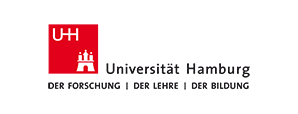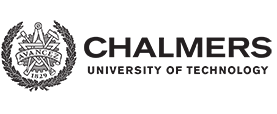Third International Radiative Transfer Modeling Workshop (IRTMW01)
Objectives
This workshop series was started in 1999. Its main objective is to enhance information exchange and collaboration regarding radiative transfer modeling in the mm and sub-mm frequency ranges. The discussions and experiences of the two first workshops have resulted in a community radiative transfer model, with the power and flexibility to be used in a wide range of applications.
The first workshop was held in April 1999 at 'Haus Bredbeck', a small facility in the countryside near Bremen. The main topics were to compare and discuss existing forward models for the simulation of atmospheric observations in the radio (microwaves to sub-mm) range. All relevant design parameters of the new radiative transfer program ARTS (Atmospheric Radiative Transfer Simulator) were discussed and fixed. The second workshop was held at the same place in June 2000. A special point during that second workshop was the first presentation of ARTS.
This October we plan to organize the third edition of the workshop where the main topic will be an intercomparison of forward models. The comparison is open for all workshop participants and it will consider ground-based, nadir looking and limb sounding observations. For example, ARTS and the JEM/SMILES Simulator, developed recently in Japan, will participate in the intercomparison.
Venue
|
Hanse-Wissenschaftskolleg Lehmkuhlenbusch 4 27753 Delmenhorst, Germany |
 |
Date
October 10 - October 11 2001Chairmen
| Dr. Stefan Buehler University of Bremen Institute of Environmental Physics P.O. Box 330440 D-28334 Bremen Germany eMail: sbuehler (at) uni-bremen.de |
Dr. Patrick Eriksson Department of Radio and Space Science Chalmers University of Technology Göteborg, Sweden. eMail: patrick (at) rss.chalmers.se |
Organization Committee
| Manager: | Carmen Verdes | University of Bremen Institute of Environmental Physics P.O. Box 330440 D-28334 Bremen Germany eMail: cverdes (at) uni-bremen.de
|
Workshop contact point
Carmen Verdes <cverdes (at) uni-bremen.de>Sponsored by
 |
University of Bremen - Institute of Environmental Physics |
 |
German Aerospace Center |
 |
Hanse-Wissenschaftskolleg |
Accommodation
The HWK has made a special arrangement with
Hotel am Stadtpark
An den Graften 1-3
27753 Delmenhorst, Germany
Website / Map
- In general each participant has to book and pay the hotel room himself/herself.
Please state that you are a participant of the IRTMW01 workshop at HWK because you will pay then a reduced price. - Please make the reservation as soon as possible since the pre-reservation of the hotel rooms ends 14 days before the symposium starts.
- For the participants the transport between the Hotel am Stadtpark and the HWK is organized with taxi-cabs.
- In case of questions or problems please contact
Mrs. Kozak
Institute of Environmental Physics, P.O. Box 330440, D-28334 Bremen, Germany
Phone: +49 421 218 4812
Fax: +49 421 218 4555
Email: kozak (at) iup.physik.uni-bremen.de.
Travel
Travel information can be found here
Participation
All scientists who's working interest lies in the field of radiative transfer modeling are invited to join the workshop and to actively participate. To allow real group work and efficient discussions, the number of participants is limited to 30. Places will be reserved on a first-come-first-served basis.
If you have not received a registration form by mail, you can download it here.
Travel information could be found here
Costs
Thanks to the sponsors of the workshop, the participation, including lunches and workshop dinner, will be free of charge. Travel and accommodation expenses have to be covered by the participants.
Programme
Timetables for the workshop
The preliminary timetabes for Wednesday (10.10.01) and Thursday (11.10.01) (status: 13 September 2001) are available in the following formats:
- timetable Wednesday 10.10.01 (HTML format)
- timetable Wednesday, 10.10.01 (PS format)
- timetable Wednesday, 10.10.01 (PDF format)
- timetable Wednesday, 10.10.01 (Excel format)
- timetable Thursday, 11.10.01 (HTML format)
- timetable Thursday, 11.10.01 (PS format)
- timetable Thursday, 11.10.01 (PDF format)
- timetable Thursday, 11.10.01 (Excel format)
Introduction / Invitation
Contribution
The workshop will to a large extend consist of group work and discussions, with only few presentations. A description of the test cases for the model intercomparison, and the corresponding inputs can be found here.
Participants will be asked to submit their forward model results before the workshop to have the comparison ready at the start of the workshop. If models can run on portable computers, bringing the models themselves would also be a good idea, to allow further comparisons during the workshop with the aim of characterizing the source to discrepancies between the models.
Participants are invited to bring their results for the test cases. If models can run on portable computers, bringing the models themselves would also be a good idea.
Instead of publishing proceedings in book form, like for the last two workshops, we this time aim to summarize the intercomparison results in a journal paper, for example in JQSRT.

